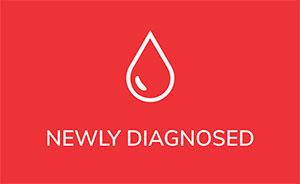In short videos with accompanying text, Dr. Brian Koffman, the Executive Vice President (EVP) and Chief Medical Officer (CMO) of the CLL Society, takes us through his “Top 12” abstracts from ASCO or the American Society of Clinical Oncology Annual Meeting held virtually in May, 2020.
#5
ASCO 2020: Survival trend of chronic lymphocytic leukemia and prognostic factors in the United States: An analysis of the National Cancer Database
CLL treatment options have dramatically improved in the last decade. Sadly, that improvement has not been equally and universally applied.
At ASCO 2020, using the National Cancer Database (NCDB), researchers looked at CLL data from 2014-2016 in 91,309 patients.
Takeaways:
- Median age of diagnosis was 70 years old
- 4% were male
- 4% of patients were White, 7.7% were Black
- 8% of patients had either Medicaid or no insurance
- At the initial diagnosis, surprisingly, 31.5% of patients were started on treatment; the rest were under active surveillance or watch and wait
- Overall survival improved to 90.3 months for those diagnosed between 2010-16 compared to 83.6 months for the group diagnosed between 2004 and 2009, proving treatments just keep getting better and better over time
Below is a disturbing table from the trial of one’s odds of overall survival (OS). HR stands for the Hazard Ratio of getting the measured problem, in this case, dying. The higher the HR, the higher the risk of not surviving.

What this means is being black or male or living outside of the New England area are all associated with significantly poorer chances of survival.
What is particularly bad for one’s chance of survival is having co-morbidities. That is what is meant by a higher Charlson/Deyo Score. Also, not having good insurance, and not being seen at a center that sees a lot of CLL patients are major factors in lowering one’s survival chances.
We have our work cut out for us.
- There are no easy answers for demographic and racial disparities. We need to work to understand the unique challenges of various demographic groups and recognize that a “one size fits all” approach in healthcare is unrealistic.
- The CLL Society can help folks speak with an expert who sees a high volume of CLL patients, even if they are from a remote location through a virtual consultation with our Expert Access Program™.
- We can work for equity no matter how you are insured, no matter where your CLL care is delivered, and especially no matter the color of your skin.
- As patients, we can work to stay healthy and avoid co-morbidities, such as diabetes or heart disease.
We at the CLL Society are working hard to ensure everyone has the best possible care.
Here is the link to the ASCO abstract: Survival trend of chronic lymphocytic leukemia and prognostic factors in the United States: An analysis of the National Cancer Database.
Please enjoy my short video overview below:
Stay strong and safe, we are all in this together.
Brian Koffman, MDCM (retired), MS Ed
Co-Founder, Executive VP, and Chief Medical Officer
CLL Society, Inc.

















